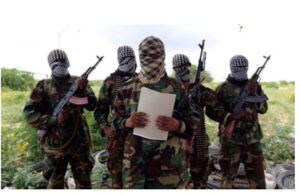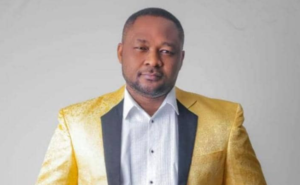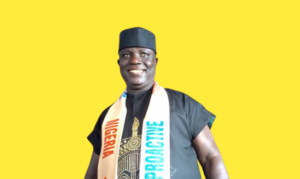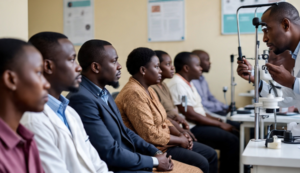Zito Madu writes a moving tribute to Chinwendu.
8 min read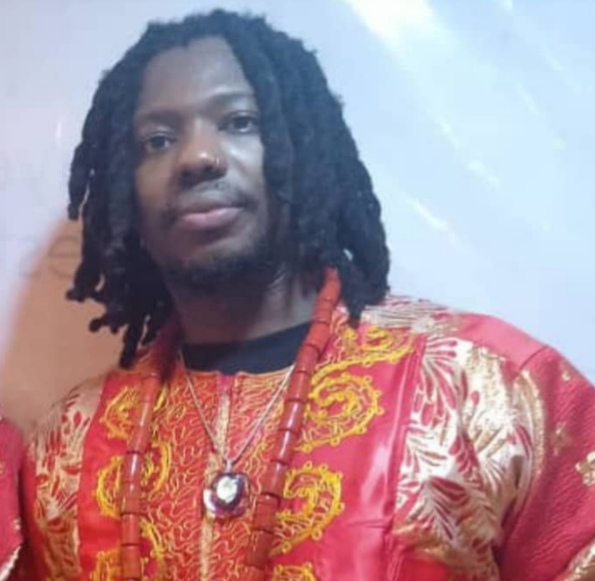
I had flown to Nigeria for my older brother’s wedding in Owerri which he recklessly celebrated on the 31st of December. I spent a few extra days and the New Year with family; afterward I flew to Lagos, leaving the buffer of a day before my flight back to New York City. My cousin Chinwendu—my father’s sister’s eldest child, whose English name is Austin—picked me up from the Lagos airport. Because the airports and airlines in Nigeria are pretty chaotic, my father had directed Austin to stay in Lagos and manage the logistics of travel for the wedding guests, and so he didn’t get to attend the wedding. Which he was sad about, but he also knew that he had to carry out the kind of obligation that was given to him because my father trusted him more than anyone else.

When I walked out of the airport, he did what he had always done since I could walk, he grabbed my hand, interlocked our fingers, and started leading me around like I was still a child even though I’m in my mid-30s now. He was thinner, but not frail. He was in his 50s with the body of a man who spent most of his day moving and working. He looked healthy and sprightly. I wouldn’t have thought anything was wrong. When the driver he’d hired asked if I was his son, instead of saying that we were cousins, he said that I was his brother.
He took me to eat at a small restaurant near the airport — and laughed that I’ve remained a very picky and simple eater since I was young once I asked for rice and fish, my usual — and then to the hotel room that he had set up for me for the day and night. After eating again in the evening, the two of us spent the rest of the time sitting on the floor of the hotel room talking until I started dozing off. We talked about everything that had happened in the gap of years since we had last seen each other, about childhood; the most typical kind of conversation whenever you are with older relatives, who constantly try to link the you in front of them, strange and different, with the child whom they had known so well, and they try, through memory, to bridge the gap between the two versions of you, looking for any clues, for a map of that bridge. He was amazed at how long my hair was, which was like my grandmother’s on my father’s side, and he remembered that even when I was small enough for her to carry me around, my hair then had already been just as thick and curly, the same as hers.
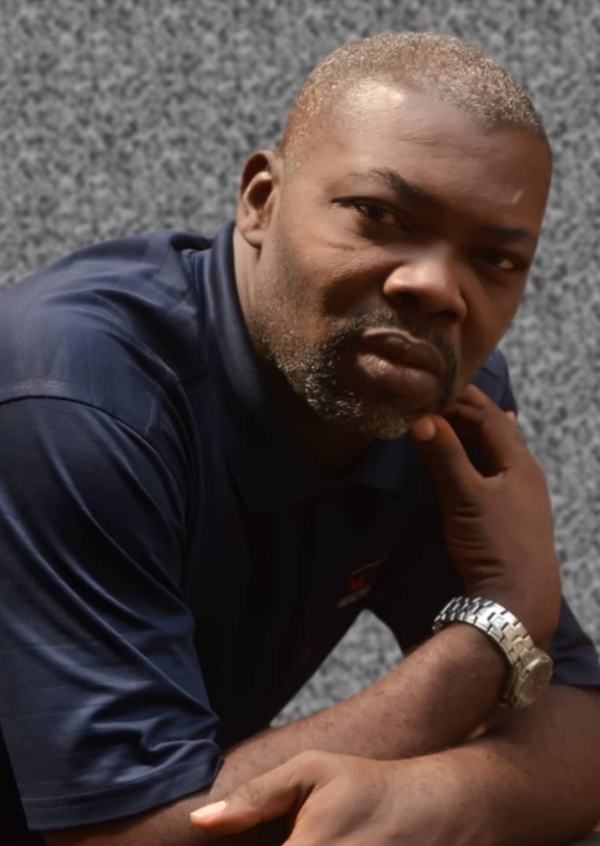
He asked about my youngest sister, who hasn’t returned to Nigeria since our immediate family left in 1998. I said that she was desperate to visit but she has been having a hard time making her own life in the United States. He asked about my work and all the traveling I do, and I showed him photos of me in different countries around the world and bragged that my book, which is set in Venice, Italy, was inspired by the time I spent there during the pandemic. He told me that some of our extended family thinks of me as the celebrity of the family, and that he liked to hear stories about my work and see photos of my travels, which my parents often sent to him, because they make him feel proud of how far our little village family has gone in the world. What he said reminded me of when my younger brother got his Ph.D., and my father said that he was happy to have lived to see someone from our family achieve such a thing.
Austin’s mother, my aunt, had died a few months before that night. My father and his sister had the same kind of relationship that my younger sister and I have: they were best friends, soul mates as siblings. My aunt had suffered a stroke earlier in the year. My father sent as much money as he could and called every single day to make sure that she was recovering well. For a while my father had no idea of her severe decline, because no one had the heart to tell him the truth.
It was Austin who called my father and told him everything and that my aunt, his mother, was only days away from death. And when she died, he called my father and told him. Austin also encouraged my father, who is 15 years older than him, to be strong, because everyone was and would be looking to him, as the oldest surviving son of his family and the patriarch, for guidance, and if he were to break down, no one else, including Austin, would know how to continue on.
When Austin, my cousin-brother, saw that I was close to passing out, he called his wife; she had wanted to speak with me, but had been nervous to ask for my number or call on her own, due to the lofty way that everyone talked about me. We talked for a few minutes, and he reassured her that since we were brothers, there was no distance between me and his wife and children. Then he went to his room to sleep for the night.
The next morning Austin took me to the airport. He tried everything to get the security to allow him to accompany me to my gate, and he waited at the airport until my plane took off.
Five months later, I was at the General Assembly Hall at the United Nations Headquarters, at the end of a two-day forum that my friends and coworkers and I had helped produce, and at which one of us even spoke. I was taking a photo to send to the family group chat when I received a text message from my father that Austin had died. Apparently he had suffered a stroke, just like his mother had, and fallen into a coma. He was rushed to the hospital, where the staff kept him unexamined for days, until my father was able to pay their several monetary demands. He would send one, and then they would ask for more, on whatever pretext they could come up with. By the time Austin was finally examined, he was in severe condition; his brain had been bleeding the whole time. By the time he was transferred for surgery, it was too late. That’s how he died, because he was left in the hospital to die.
Being a Nigerian can be a strange experience, as I imagine is similar to every other nationality or any kind of grouping, really. When people, whether Nigerians or others, talk about what a Nigerian is and what it is like to be a Nigerian, it’s often about the performance of that identity, behaviors, experiences, stereotypes, that are the reduction of the lives and lived experiences of millions of people into a few simple, propagandistic ideas. Nigerians are so hardworking and creative, one hears, but they’re also scammers and chaotic.
When I get asked about being Nigerian, or when the topic comes up in conversation, I try to decline participating because I personally have a lot of anger in my heart. I have a lot of anger and I don’t want to have a lot of anger towards my homeland, my home, the home of my grandparents and my parents; a fictional identity, like any national identity, but one that my history and my family’s history is bound up in.
But it is also a place, a real place that has taken so many people I love from me.
My cousin-brother, aunts and uncles, other cousins and childhood friends who have all died young for every senseless reason from medical malpractice to being attacked by police to being bludgeoned by thieves and left on the side of the road at night to die. One of my younger cousins, the first child of an uncle on my mom’s side, was kidnapped in front of his shop and never found. So I cannot help this anger, because that place has made my world a lot smaller than it should have been, than it should be, and this uncontrollable anger turns into a consuming rage whenever I’m home for long periods of time and I drive or walk around and see how the poor are condemned to suffer for no reason other than the nonpayment of some ransom that would otherwise allow them to be accepted as human and deserving of a dignified life. It is hard to talk about or conceive of the positive stereotypes of an identity that is inextricably connected to this cruelty to life.
I am an adult, but I am unfortunately still too childish to reckon and reconcile with death. I can’t speak in generalities about what grief is or isn’t, what lessons it might teach us, or how it’s the evidence of love, because the idea, the fact, that the next time I go home again, my cousin-brother won’t be there to hold me by the hand as he has since I first started to know the world and myself, is absurd to me. My world has never existed without him in it until now.
That he no longer exists in the same world that I do (I speak not of the spiritual sense or in any other form that might act as a consolation for death), in the physical sense, the real, the fact that I can no longer sit with him on the floor and listen to him tell the stories of his life and tell him the story of my life, that I will never again see him, all of this I know is true, but it does not make sense to me. And yet, what power do disbelief, love, and anger have against the most final of endings?
All I can do now, in my life and in this world that no longer has him in it, is to repeat what he sent me before my plane took off in Lagos, when I didn’t know that I would never see him again: “Safe journey; the same God Almighty that brought you safely home is as well taking you back safe and sound.”

